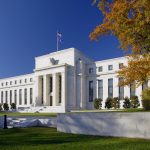One of the greatest problems that both economists and politicians face is the key element of communication. Yes, they may indeed be trying to use the same language as the rest of us, but the interpretation of their views, opinions and even seemingly solid data will greatly vary according to the audience they are addressing. After all most of us are not economists (possibly the dullest guests at your next dinner party may be), and thus very likely not necessarily fully comprehend the technical jargon of their mirky world.
Obviously, all politicians will grasp at anything which they see as supporting their policies, and just as there are lies, damn lies and statistics, the same data can be spun in many different directions. A classic example is the question of inflation, or maybe dis-inflation and then deflation? The Thesaurus of the economist is an ever growing list of technical terminology which frankly means about as much to us as a wizard’s book on casting spells. The witches and warlocks may have their compendium of potions and suitable uses for the “feet of newts and the wings of bats” but for that the economists will be throwing terms including their favourite over the past two decades, “Quantitative Easing.”
Until very recently no-one had heard of such a thing, but when faced with banking crises and economic failings, QE came to be a miracle medicine for ailing economies. It took a year or two but finally even the politicians realised that they had discovered a Magical Money Tree which can give us piles of golden gelder without having to fight any dragons. Eventually, however, such tales have to reflect the reality that the Money Tree was just a lovely phrase for printing more money.
But by that stage a whole generation had been brought up thinking of inflation as being a tale of years gone by, and the danger of it suitably slain. The past few years has finally broken that charade as double digit inflation burst the bubbles of financial hopes and desires of many who were used to far lower levels being the norm.
The effect of this has been quite simple: belief in such statistics and numbers has been discredited and thus the key for any successful economy has been broken – confidence. So long as the population and business world have confidence in the numbers they are being fed, then the economy can continue to prosper. However, if the credibility of the numbers, and more importantly those spouting such data, is lost, then we are in a very different world. Confidence is a bubble easily burst, whereas confidence is also a balloon which can take years of huffing and puffing to really get buoyant again.
This is the position now in the UK. At the time of writing, after 14 years in power the current government is the latest incarnation of the Conservative party and by any measure is struggling to retain such confidence (although this may change after the July 4th election.) The Chancellor of the Exchequer, Jeremy Hunt, has had the unenviable role of inheriting the past pains and traumas of quite a number of his predecessors alongside it their reputations. In effect all he can do is to show a strong and steady hand on the tiller of the ship of state – though he can only partially influence a domestic economy, while more importantly he has little or no control over the international economy.
For any politician now, whatever they can achieve domestically is likely to be overshadowed by international woes and worries. Whether it is dealing with the machinations of a dictatorial Russian leader, a growing list of international aggression, or an American presidential election involving competing geriatrics. Against this background we can point to a global economy which is still growing (which is remarkable enough) but at a steadily slower rate.
The issues of global instability are not new, but seem to be getting far greater coverage than before. Whether it is the conflict in the Middle East, through to territorial claims of stronger and more assertive countries in the South China Sea, the Indian northern borders or certain African areas, the world seems to be in a troubled political state with little political confidence and a creeping concern over its long term ability to manage its climate.
Against this the task of a politician in the UK to create a strong air of confidence and success is going to require efforts which even Hercules would have struggled to manage. After all, cleaning the Augean stables in a day, or slaying a nine headed Hydra seems more like domestic tasks in a dangerous zoo compared to resolving the pains of Palestine and urgency of the Ukraine.
But the UK can take comfort from the fact that inflation levels are lower, and that growth has returned. Taking comfort, though, will not necessarily provide leaders with enough evidence to build the confidence necessary to try to win the next election. This can only highlight the limited effect that one nation can have in a dangerous world. “Doing the right thing” is a prerequisite, but that in itself will not be enough to win the hearts and minds of electors already fearful of an increasingly dangerous and unstable world.









